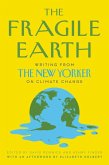In places such as Elgin Air Force Base, the human uses - testing munitions, profitable timbering and recreation - continue, but populations of several threatened species on the base, such as the long-leaf pine and the red-cockaded woodpecker, have been greatly improved. The Safe Harbor strategy of the Fish & Wildlife Service encourages private landowners to improve their property for endangered species, thus overcoming the unintended negative aspects of the Endangered Species Act. And Golden Gate Park, which began as a system of sand dunes, has become, through human effort, a world of ponds and shrubs, waterfowl and trees. Rosenzweig shows that reconciliation ecology is the missing tool of conservation, the practical, scientifically based approach that, when added to the rest, will solve the problem of preserving Earth's species.
A professor of ecology and evolutionary biology at the University of Arizona offers guidelines to achieve practical improvements to the environment while still allowing for human progress. 29 illustrations.
Hinweis: Dieser Artikel kann nur an eine deutsche Lieferadresse ausgeliefert werden.
A professor of ecology and evolutionary biology at the University of Arizona offers guidelines to achieve practical improvements to the environment while still allowing for human progress. 29 illustrations.
Hinweis: Dieser Artikel kann nur an eine deutsche Lieferadresse ausgeliefert werden.








